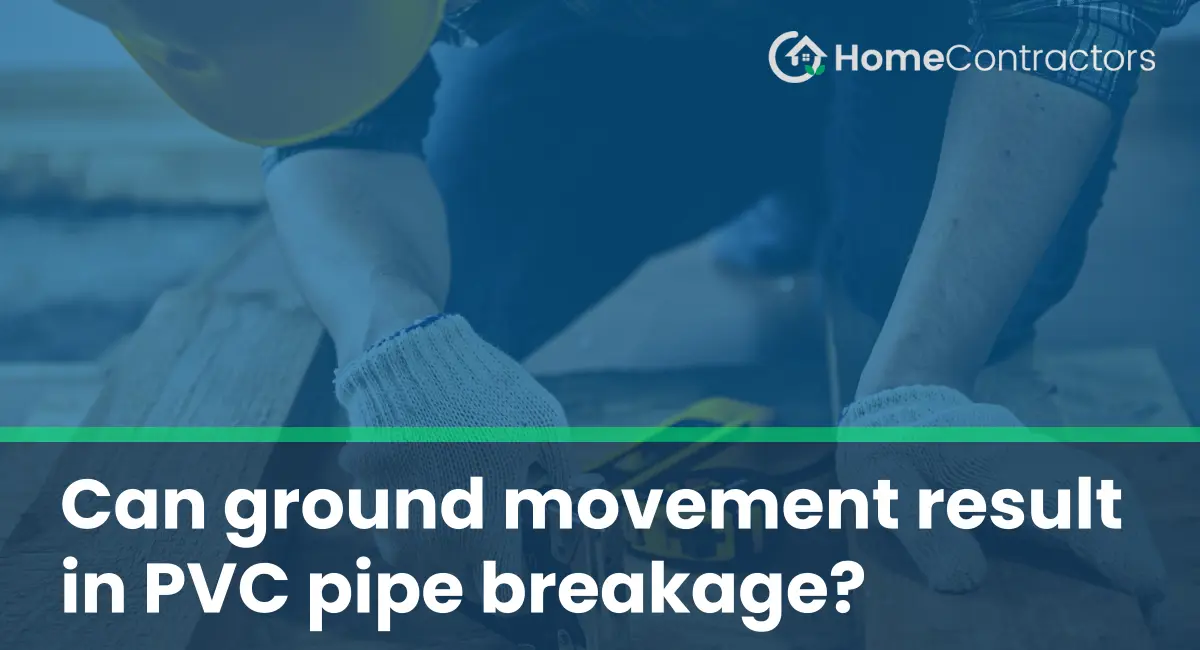PVC (polyvinyl chloride) pipes are a popular choice for plumbing systems due to their durability, affordability, and ease of installation. These pipes are commonly used to carry water and other fluids safely and efficiently. However, like any material, PVC pipes are subject to certain risk factors that may result in breakage or damage. One such risk is ground movement, which can exert significant stress on underground pipes. In this article, we will explore the effects of ground movement on PVC pipes and discuss preventive measures to minimize the potential for breakage.
Understanding PVC Pipes and Their Vulnerabilities:
1. PVC Pipe Composition and Characteristics:
PVC pipes are made from a combination of vinyl polymers and plasticizers, which contribute to their high flexibility and resistance to corrosion and chemicals. These pipes are commonly used in both residential and commercial plumbing applications due to their lightweight nature, affordability, and longevity.
2. Susceptibility to Ground Movement:
While PVC pipes are generally resilient, they are not impervious to external forces, particularly when it comes to ground movement. There are various reasons for ground movement, such as seismic activity, soil erosion, frost heave, and settling. These movements can cause shifts, undulations, or even compression within the surrounding soil, putting excessive stress on underground pipes.
Potential Effects of Ground Movement on PVC Pipes:
1. Pipe Misalignment:
Ground movement can lead to horizontal or vertical shifts, misaligning the PVC pipes within the soil. This misalignment puts the pipes at risk of developing weak points, which can lead to fractures or breakages.
2. Pipe Constriction or Crushing:
Compression caused by ground movement can cause the soil to bear down on PVC pipes, resulting in constriction or crushing. This can lead to cracks, deformation, or complete collapse of the pipe, disrupting the flow of water or other fluids.
3. Joint Separation or Failure:
PVC pipes typically utilize solvent cement joints or mechanical couplings to connect sections. Ground movement can lead to shearing forces that cause joint separation or failure. When the joints weaken or come undone, the structural integrity of the pipeline is compromised, increasing the risk of a pipe break or leak.
Preventive Measures to Minimize PVC Pipe Breakage due to Ground Movement:
1. Proper Installation Techniques:
Ensuring proper installation is crucial to safeguarding PVC pipes against ground movement. Key measures include using appropriate bedding materials, properly compacting the soil around the pipes, and correctly aligning and securing joints.
2. Adding Reinforcements:
In areas prone to ground movement, additional reinforcements can be incorporated to strengthen the PVC pipes. Options include using concrete encasements, installing reinforced sleeves, or utilizing steel rods alongside the pipeline to provide added structural support.
3. Regular Inspection and Maintenance:
Routine inspections allow for early identification of potential weak points or signs of ground movement affecting the PVC pipe system. Timely repairs or remedial actions can prevent further damage and minimize the risk of a major breakage.
Ground movement can indeed result in PVC pipe breakage, compromising the integrity of plumbing systems. Understanding the vulnerabilities of PVC pipes to ground movement is essential for preventing catastrophic failures. By focusing on proper installation techniques, incorporating reinforcements in high-risk areas, and conducting regular inspections and maintenance, the risk of PVC pipe breakage due to ground movement can be significantly reduced. It is advisable to consult with professionals, such as plumbers or civil engineers, for guidance on effective preventive measures specific to the location and environment.
